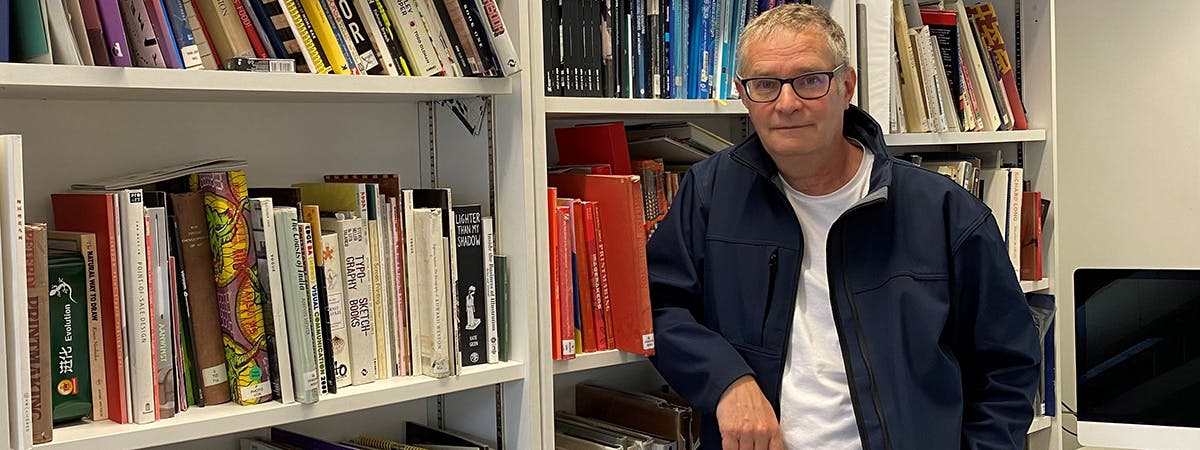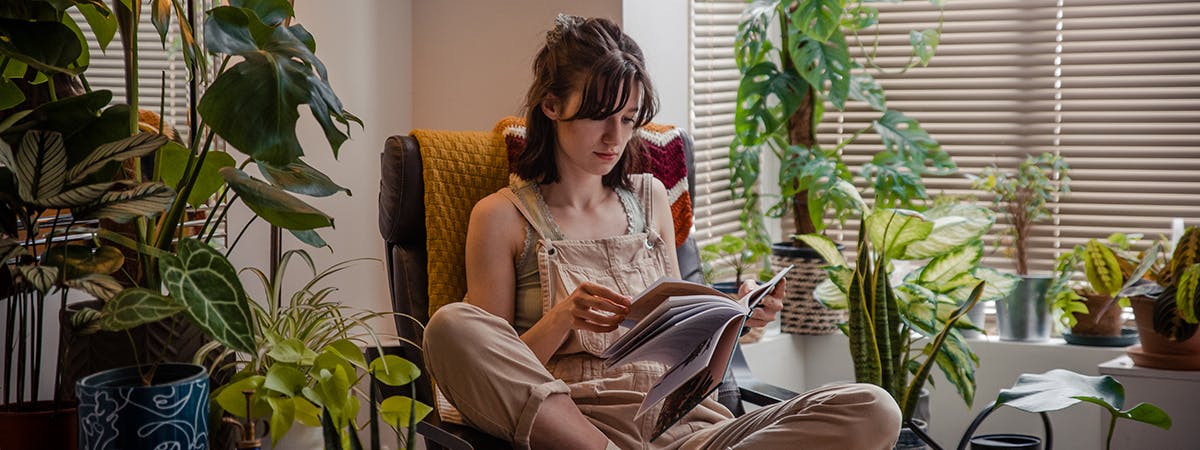With a huge variety of wonderful staff members and academics teaching our courses and shaping the futures of our students, we wanted to unpack their stories and discover how they got to where they are now.
Andrew Kulman, Lecturer of MA Visual Communication (Illustration and Graphic Art), shares an insight into his career and work.

What do you do at BCU and how long have you been part of the University?
I've worked for BCU for almost a quarter of a century and in that time I've had many distinct roles, that's why it's never felt like I was doing the same job.
Currently I'm Deputy Head of Birmingham Institute of Creative Arts (for Games, Film and Animation) and I lecture on MA Visual Communication with my specialism being Illustration and Graphic Art.
My first role was to run the pathway in Illustration, since then I've been course director across several schools as well as heading up school research and marketing and admissions activities. The latter role has afforded me opportunities to travel overseas to recruit students.
Could you tell us about your experience and how this feeds into your teaching?
I've always maintained my practice as an illustrator and printmaker, this has allowed me the opportunity to teach my students techniques through practical workshops. 'Learning by doing' is the best way for people to learn. I've been fortunate to visit other institutions both as a lecturer and as an examiner, sharing good practice is good for 'cross-pollination' of best practice. When I've visited institutions such as the Willem de Kooning Akademie (WDKA) in Rotterdam, I've been able to bring that knowledge and experience gained and apply it to the studios at BCU.
What are some of the greatest achievements you have accomplished at BCU?
I try to disseminate my knowledge to others in the field and this has led to me achieving status as a Principal Fellow of the Higher Education Academy in 2016 and the following year I was made a National Teaching Fellow.
I'm particularly interested in how we can solve problems using creative thinking, this is a transferable skill and can benefit graduates in whatever field they go into. A lot of what I do is based around visual storytelling, something that transcends language and communicates across boundaries too.
I think that teaching overseas students our partner institutions in Bangkok and Hong Kong has made me aware of cultural differences and approaches to learning. This has served me well when teaching on the postgraduate courses in my institution, where many overseas students apply each year.
What makes the courses you teach on distinct and what is the learning environment like?
I'd specifically like to talk about MA Visual Communication. Firstly we have a excellent team of staff, comprising of industry practitioners, who are dedicated professionals. The course is broad in its reach but narrows down to specialised areas of knowledge, we're typically developing versatilists or T-shaped graduates. By that I mean they gain broad experiences from the course as well as in-depth knowledge of their particular area of specialism.
The course offers wide cultural experiences from study trips to social events which enhance the student experience. The course gained 100 per cent in the postgraduate student experience survey 2021/22.
Why do you think Birmingham is a good place to study?
At this moment in time Birmingham is undergoing a transformation with developments centered around the rejuvenation of the city centre. You only have to look at how Centenary Square and Paradise Square have opened up the centre. Of course HS2 and the Commonwealth Games will impact on the infrastructure. Being at BCU puts us right there in the centre of all this activity and offers opportunities to take part through projects that are generated and civic engagement. Talking to students, I hear how much they find Birmingham an exciting and vibrant community.
What can students do to help prepare them for their course?
We encourage students to develop broad interests and experiences as well as having deeper, more subject-specific skillsets. This makes for a more rounded graduate that companies and organisations are seeking to employ. It's important they visit exhibitions and events, read into their subject in some depth.
The staff are all active in their areas, this means you will be taught and instructed by people with industry knowledge and expertise, their networks open doors for students to get a foothold in the creative industries. Students need to be prepared to be outside facing and to take advantage of this opportunity.
BCU is a friendly, inclusive place to study and reflects the diversity of the city, it fosters a culture of trust and freedom for students to create and express themselves, this is part of an educational journey they won’t forget.
What’s your favourite thing about working at the University?
For me, I think the opportunities that present themselves for staff and students to share experiences and form a community is one of the most attractive reasons I enjoy working at BCU. I also like being able to work across different sites and locations, such as our School of Art building and the City Centre Campus Parkside building. The buildings themselves are works of art in themselves.
Visual Communication Courses
Find out more about our courses



